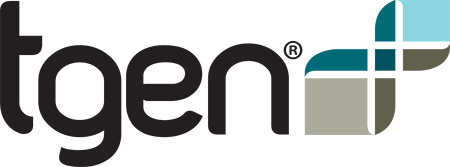George Mason University technology supported by National Institutes of Health
PHOENIX, Ariz. and MANASSAS, Va. — July 10, 2014 — The Translational Genomics Research Institute (TGen) and Ceres Nanosciences, Inc. (Ceres) today announced a development collaboration to benefit patients with cancer, infectious diseases, and other life-threatening illnesses.
TGen, at the heart of Phoenix’s Biomedical Campus, is recognized as a pioneer in studying genomics, or DNA, to uncover the underlying molecular causes of disease, as well as developing automated workflows to enable molecular medicine. Ceres, a biotechnology company located in northern Virginia, has developed and commercialized a novel nanotechnology, the “Nanotrap®”, which provides powerful sample processing capabilities for a wide array of diagnostic applications and sample handling needs.
The Nanotrap technology was invented at George Mason University (Mason) under funding from the National Institutes of Health (NIH) for biomarker discovery applications, and currently is being developed into commercial grade products by Ceres with continuing support from NIH, Defense Advanced Research Projects Agency (DARPA), Department of Homeland Security (DHS), and the Commonwealth of Virginia.
The combination of Ceres’ Nanotrap technology and TGen’s world-class research capabilities and resources will lead to significant improvements in high sensitivity and high throughput clinical diagnostics, providing substantial patient benefit with newer, more accurate, and more reliable testing methods for a range of life-threatening diseases.
The collaboration has already produced data that demonstrates the Nanotrap particles’ performance in automated high-throughput biomarker discovery applications. Ceres, TGen and Mason will use the exciting preliminary results to seek additional collaborations and support to develop an array of new sample processing and diagnostic solutions.
“There is great patient demand and clinical utility for new, groundbreaking diagnostic tests for the early detection of cancer and other life-threatening diseases,” said Ross Dunlap, CEO of Ceres. “The biggest challenge to delivering these tests is building the scale and efficiency required to make these new tests cost-effective. Speed and throughput coupled with even higher analytical sensitivities than have ever been achieved before is the key. The collaboration between Ceres and TGen is already addressing this challenge by integrating advanced automation solutions, analytical platforms, and sample processing technologies to deliver groundbreaking protein and DNA based clinical tests.”
“TGen’s collaboration with Ceres enables additional research to expand our work into other disease settings,” said Dr. Michael Berens, TGen Deputy Director for Research Resources, “and Nanotrap allows us to do so by functioning at the fastest and most-sensitive levels while using only minimally- or non-invasive patient samples.”
# # #
About Ceres Nanosciences, Inc.
Ceres Nanosciences is a privately held company focused on the development of research and diagnostic products using its unique and proprietary Nanotrap® capture particle technology. Ceres’ business goals are to develop a number of commercial applications of the Nanotrap® for high-demand diagnostics and other needs in the life science industry.
Press Contact:
Ross M. Dunlap
Ceres Nanosciences, Inc
1.800.615.0418 ext. 202
rdunlap@ceresnano.com
*
About TGen
Translational Genomics Research Institute (TGen) is a Phoenix, Arizona-based nonprofit organization dedicated to conducting groundbreaking research with life changing results. TGen is focused on helping patients with cancer, neurological disorders and diabetes, through cutting edge translational research (the process of rapidly moving research towards patient benefit). TGen physicians and scientists work to unravel the genetic components of both common and rare complex diseases in adults and children. Working with collaborators in the scientific and medical communities literally worldwide, TGen makes a substantial contribution to help patients through efficiency and effectiveness of the translational process. For more information, visit: www.tgen.org.
Press Contact:
Steve Yozwiak
TGen Senior Science Writer
602-343-8704
syozwiak@tgen.org

